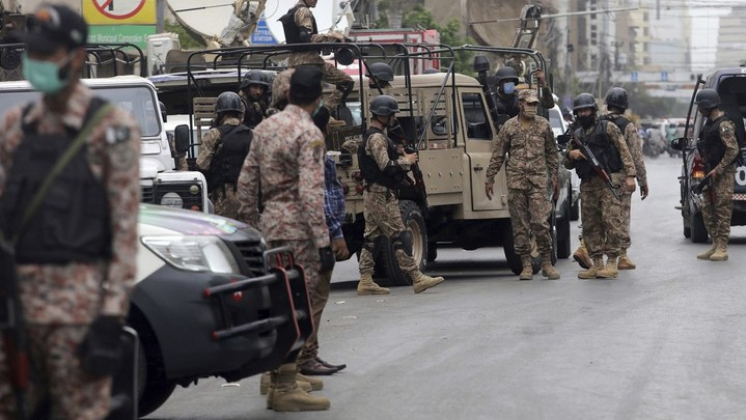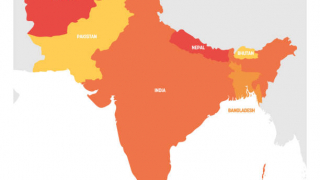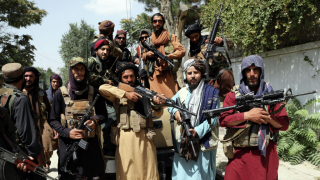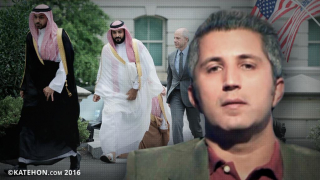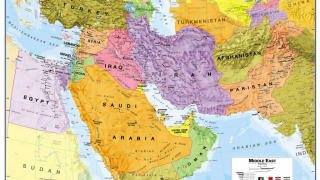Pakistan’s Counter Terrorism Strategy Against Resurfacing Insurgent Groups
In the backdrop of US invasion of Afghanistan, Pakistan has been embroiled in countering an insurgency in its tribal areas. The War on terrorism (WOT) was initiated in Afghanistan, and its fallout was ensued with the creation of insurgent groups. These insurgents in their attempt to profit from the war began to become mercenaries for hire. By capitalizing on the same narrative employed by the Afghan Taliban, to conduct terrorism on Pakistani soil. Tehrik-e-Taliban Pakistan (TTP) is not a Tehrik which it purports itself to be, unlike the Afghan Taliban to TTP, neither it is a group of Talibs which in essence are a group of individuals engaged in some learning activities, while pledging allegiance to an ideology. Therefore, TTP is neither a Tehrik nor a group of so called Talibs, rather a group of debased thugs, where the TTP actually stands for Terrorist Taliban against Pakistan not the other named Tehrik which the group broadly projects on the mantra of a so called ‘Tehrik’.
The recent resurgence of TTP attests to the fact that it was ‘pacing threat’, and which is now resulting in a flare up of hostilities and attacks by TTP and pose a serious threat to Pakistan. Along with ongoing assaults on Pakistani interests, the TTP unilaterally broke the peace accord. While the certain factions within the Afghan Taliban willingly provide shelter to TTP. India’s external intelligence wing, RAW trains, finances and arms the TTP and ISKP (Islamic state of Khorasan province). All of these major incidents are reasonable red flags indicating Afghan Taliban’s incompetence and Indian proxy complicity. Concern has been raised about India's destabilizing influence in the region through its support of non-state entities who are at odds with Pakistan. Since 2014, the Indian government has sought to communicate with the ISKP and Al-Qaeda in order to harm Pakistan. The growing alliance and merging of cells between ISKP and TTP unsettlingly places a serious threat to Pakistan and the region as a whole.
Such assaults indicate the presence of Indian counterintelligence resources using proxies to operate in Taliban-controlled Afghanistan. Factual proof, of such Indian machinations was given by Pakistan’s government of a 131- page dossier, audio and video records, along with precise GPS locations of five Indian funded and managed ISKP terror training facilities including probable use of chemical weapons. These fresh attacks are conceivably evidence of Indian proxy participation in Afghanistan and Taliban incompetence. These express alarm over an expanding connection between ISKP and TTP.
The plinth of the TTP is implementation of a strict interpretation of Sharia throughout Pakistan which the TTP cherry picks according to their own personal favor to meet their political needs in the erstwhile FATA as their activity circle. The core solutions and immediate stratagems to be executed are to take bold steps to tackle this paradox by substantially boosting our efforts with swift operations such as rapid actions to capture the abettors and facilitators by conducting thorough intelligence, reconnaissance and surveillance operations (IRS) and by rooting out the sleeper cells and splinter factions. Secondly, to mount a multi-pronged hybrid and decisive kinetic strategic attacks to weed out the TTP and ISKP preferably with regional cooperation. Conduct meticulous surveillance of their suspected routes into Pakistan’s soil and block them. Expand the intelligence network with the help of locals, alongside the Police and CTD officials in sensitive areas.
Government to acknowledge the grievances of the tribal locals and warrant the speedy sanctioning of the interrupted funds of the aggrieved inhabitants. Likewise, the Federal government ought to assist the KP government to help them restructure the law and order situation in the tribal region. To re-establish military courts to swiftly apprehend the militants and those involved to punish the criminals overnight.
Since there has been a lack of concrete agreements and close coordination between Pakistan and Islamic Emirate of Afghanistan (IEA) on the issue of TTP, as it is internally divided on this matter. Therefore, close negotiations need to be made to deal with the Afghan government. The Afghan reservations regarding their links with the TTP need to be addressed. It is best to make a suitable agreement with them to make them give Pakistan assurance that they would prevent the infiltration of these TTP militants into Pakistan’s territory and exhort the Afghan government to coerce the TTP beyond just facilitating talks and to ensure that these instances to do not occur in the future.
Selective military and intelligence based operations to be carried out by the state and its agencies incessantly, without giving time to militants to maneuver and fiving any concessions. Implementing NACTA recommendation’s and ensuring better collaboration among all stakeholders, for guaranteed optimal security which is paramount.
A more comprehensive strategy that covers the entire Pakistan-Afghanistan International border is necessary by concentrating on militant cleanup operations, in particular border areas because if certain sectors of the border are ignored then this allows TTP and ISKP to relocate, regroup and launch new attacks against Pakistan. Pakistan to meticulously counter the media blitz of disinformation in which India and TTP who are actively engaged in such maligning acts of the youth and general public. To impose a blockade on anti-state narratives proliferating in their social media accounts, along with the scrutiny of the misleading print media.
From a purely defensive perspective; Pakistan could employ the Briggs plan. In which new purpose built settlements to be created in the tribal areas. Guarded by paramilitary forces, surrounded by barbed wires and lit by flood lights all the while being guarded by a strong police presence in order to prevent the militants from approaching the general public. To prevent the movement of TTP members into the general areas of the public, this arranged settlement program could disrupt the recruiting practices of the TTP. Secondly, mechanisms to enable coordination between the army, the police and the civil authorities, through a committee system. In which representatives would sit on federal and district committees. To take decisive actions against these TTP guerrillas.
Equally, the Templar plan can also be executed very proactively which involves the policy of hearts and minds. With the goal of gaining popular support amongst the local population in fighting the insurgents. Which involves building schools, medical clinics, proper sewer systems etc. Moreover, to use smaller armed units especially trained in guerrilla warfare in selected areas to station for up to three months at a time. The plan includes search and destroy patrols to reduce the operational area of the insurgents and establish surveillance forts. Also, the concept honey pots can be used to increase the insurgent activity in a given area where it would seem armed forces to be off guard and resting, and when the insurgent forces come to attack these areas they are actually being lured in and just then ambushed and apprehended.
Members of the TTP are no more than a band of illiterate thugs and mercenaries for hire who conduct their mendacious activities under the garb of Islamic Sharia. TTP has orchestrated some of the deadliest attacks in Pakistan.
Pakistan never deals with mass murderers and terrorists and uncivilized groups on the same footing as it would with a state entity, rather it deals with them with an iron fist. The time to employ a bloody nose strategy has gone by rather, the need of the hour to outright exterminate these anti state actors. It would be prudent for Pakistan on leveraging lessons from its decade and a half of combating terrorism and insurgency and addressing the underlying causes of extremism and by applying the lessons learnt as we do not intent to see Pakistan being dealt with the same carnage again. Hence ruthless pragmatism in the face of these militants is the only strategy worth executing.

